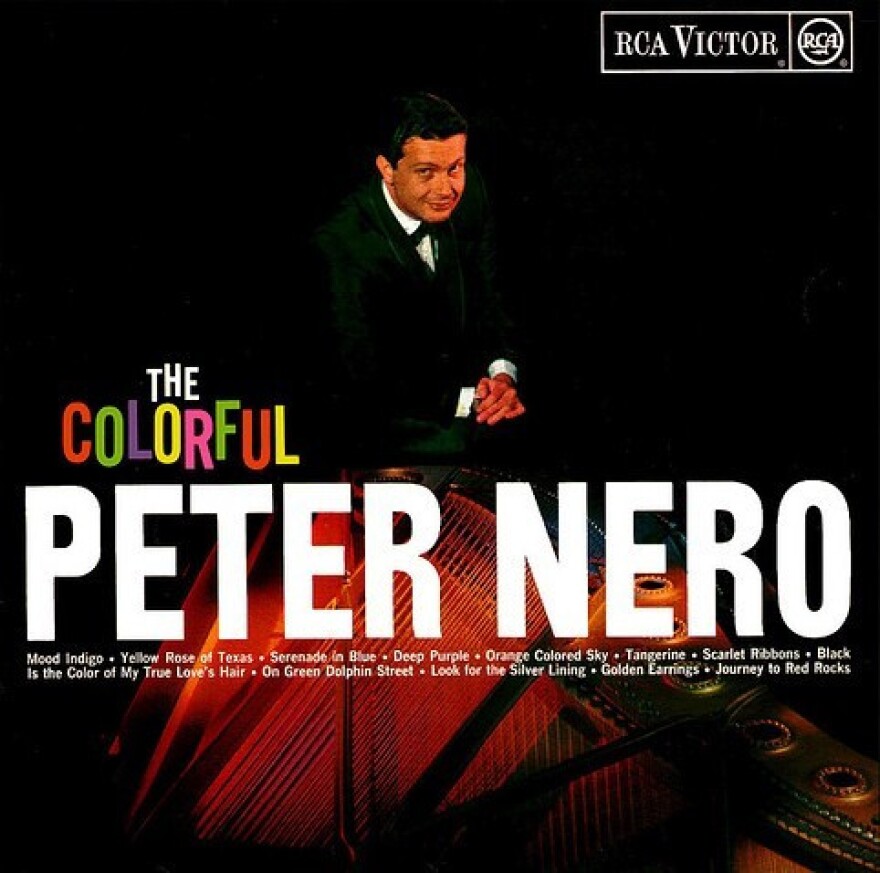Peter Nero, a concert pianist who bridged classical music, jazz and instrumental pop in a career spanning more than 65 years, notably in his legendary tenure as conductor of the Philly Pops, died on Thursday in Eustis, Fla. He was 89.
His daughter, Beverly Nero, told The Philadelphia Inquirer that he died of natural causes.
Through his affiliation with the Philly Pops, which lasted from 1979 to 2013, Nero became a beloved fixture on Philadelphia’s cultural scene — famous for conducting with one hand, while he played piano with the other. “There are countless unforgettable moments which Peter brought to Philadelphia,” the Pops told the Inquirer in a written statement. “The Philly Pops has always been inspired by his vision, his talent, and his artistry.”
But before he embarked on a career as a conductor, Nero had an impressive career as a pianist, releasing more than 70 albums and scoring many chart successes. He won Best New Artist at the 1962 Grammy Awards, on the basis of his second RCA album, New Piano in Town, which featured orchestral versions of popular standards like “Three Coins in the Fountain,” “Tea For Two” and “Maria” from West Side Story.

He scored another Grammy the following year, for The Colorful Peter Nero, which exploited the same winning formula to win Best Performance by an Orchestra or Instrumentalist with an Orchestra.
Nero brought true musical sophistication to this middlebrow proposition, often stepping right up to the threshold of schmaltz. During an era when rock ‘n’ roll conveyed the insurgent spirit of youthful rebellion, his personal hybrid of pop flair, jazz fluency and orchestral sheen captured a niche. Hail the Conquering Nero, reached No. 5 on the Billboard pop album chart in 1963.
Just two years later, RCA released The Best of Peter Nero, drawing highlights from his slender but successful discography; a capsule review in Billboard noted that it “adds up to one powerhouse of musical entertainment and enjoyment.”
One measure of his celebrity at the time came from Hollywood. Nero not only composed the score for the 1963 romantic comedy Sunday in New York, starring Jane Fonda; he appears as himself in the film, performing in a nightclub.
This was an accurate reflection Nero was a sensational nightclub attraction, creating a signature out of what we now call mashups: playfully discursive linkages between the classical canon (Prokofiev and Liszt), jazz standards (Gershwin and Porter) and the popular themes of the day (from “Hello, Dolly!” to “Hey Jude”). “Mr. Nero is a polished, skillful and imaginative pianist with taste and a sense of humor,” wrote the New York Times jazz critic John S. Wilson in 1971, reviewing an engagement at the St. Regis Hotel. “He enlivens his performances with occasional flashes of jazz but for the most part he is considerate of the composer’s melodic intent.”
His biggest hit single, in 1973, was “Theme From ‘The Summer of ‘42,” Michel Legrand’s bittersweet, Grammy-winning theme for a blockbuster coming-of-age film. Nero’s version sold a million copies, and landed at No. 21 on Billboard’s pop singles chart.
Born Bernard Nierow in Brooklyn, NY on May 22, 1934, Nero showed prodigious talent as a pianist, performing publicly by age 7. He attended the High School of Music and Art (later known as the Fiorello H. LaGuardia High School of Music & Art and Performing Arts), with additional studies at Juilliard. While earning a bachelor’s degree in psychology from Brooklyn College, he studied privately with the husband-and-wife piano gurus Abram Chasins and Constance Keene.
Acclaim came from a number of sources, including Vladimir Horowitz, one of the judges on a talent contest run by the New York classical station WQXR. (Young Bernard Nierow won that contest; Keene, his former teacher, later told Keyboard Classics magazine that Horowitz had been his biggest fan.)
Nero put club gigging behind him in the 1970s, focusing on a concert career. He composed a musical adaptation of Anne Frank: The Diary of a Young Girl for voice and orchestra, giving the piece its first full premiere in 1973 with the Greater Trenton Symphony Orchestra, the Trenton State College Chorus and a chorus of area children; the title role was handled by his 15-year-old daughter, Beverly.

She survives him along with his son, Jedd; his brother, Alan; and three grandchildren.
Nero was married three times, most recently to Rebecca Edie, a pianist with the Philly Pops. (Each of his marriages ended in divorce.)
His reign with the Pops began partly in a spirit of rivalry: he was following in the footsteps of Arthur Fiedler, who had pioneered the format with the Boston Pops, and hoped to raise the bar. Philadelphia audiences will say unequivocally that he did, as the orchestra’s star attraction for almost 35 years.
Nero and the Pops parted ways a decade ago, over the issue of his salary, which ran to half a million dollars. The nonprofit orchestra has struggled financially, especially in recent months: last fall it announced that it would shut down after the 2022-23 season, and earlier this year it was evicted from the Kimmel Cultural Campus over $520,000 in back rent. Last week, a confederation of Pops veterans rebranded as the “No Name Pops” announced its intention to perform at the Kimmel Center on Oct. 28.
That moniker would probably have elicited a bemused chuckle from Nero, who brought name recognition to the Pops throughout his tenure — his name and theirs alike.


